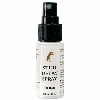Sex is a mental and physical pursuit that sometimes feels like it should come with instructions. As with anything else, what one man likes can be quite different from what another likes. It can be a challenge to find the right ingredients for a connected and pleasurable sex life.
As a man, it's important to engage in activities that maintain your overall health, which affects your sexual health. Reducing stress, eating right, exercising, and avoiding bad habits like smoking and drinking too much alcohol can keep you in good shape. A healthy lifestyle also gives you sexual confidence, which is not a bad side effect.
Healthy sex: What to do
Sex doesn't have to be like the movies to be great. It's up to you and your partner to figure out what excites you and him and what connects the two. Here are some tips to help you take sex to the next level.
Dominate the foreplay
When it comes to foreplay, the top triggers for people can look very different. For example, if you ask your partner if he wants to have sex and he quickly replies no, you may be asking the right question with the wrong words or body language. Foreplay is all about emotion and desire. It's important to show that you don't just want to have sex, but that you want to have sex with your partner specifically.
Masturbation: misconceptions and realities
Masturbation releases chemicals in your body that relieve stress and simply make you feel good. A common misconception that some people have is that if they are in a relationship, they shouldn't masturbate. First, it's important to talk to your partner about how he feels about masturbation and be clear about what is and isn't okay. Some couples even try to masturbate in front of each other. Not only can this teach you about your partner's pleasure zones, but it can also demystify the act for your partner.
Other misconceptions that exist about masturbation include that it weakens an erection or that too much can harm your penis. While it is possible to injure or irritate the skin with masturbation, there is usually no harm done. The only key difference here is asking whether masturbation gets in the way of daily activities or life. If the answer is yes, there may be a deeper connection to masturbation for you that you should talk to your doctor about.
Healthy Sex: What Not to Do
During the act
Sometimes the most important no's when it comes to sex are the simplest to say and the hardest to understand. But biology and proven knowledge make most of these actions major cons when it comes to sex:
Rushing or acting like it's a chore: This is especially true if you're in the driver's seat, performing oral sex or otherwise stimulating your partner. Sex is about fun and time.
Expect gratitude or reciprocity: While you often expect give and take, demanding is quite another thing. You shouldn't expect applause every time you engage in foreplay (even if you don't want to or you did a great job). Do things in the bedroom because you want to, not because you have to or because you expect thanks.
Other important 'don'ts' to know
A big no to sex is to focus on the end result and not the journey. Other things you shouldn't do include:
Engaging in rough sex without talking to your partner: Safewords that can indicate when you've gone too far are there for a reason. Establish one if the line is crossed between pleasure and pain.
Let distractions in: No texting, answering your phone, or stopping to check a game score.
Call your partner by another name: This one speaks for itself.
Be Completely Silent: From groans to words of encouragement, letting your partner know you're in the mood can go a long way.
Erectile dysfunction (ED) describes a symptom of several common but treatable problems. Erectile dysfunction occurs when a man has difficulty getting or keeping an erection that can sustain sexual intercourse. It's a complex condition because there are so many contributing factors including blood flow, nerve function, hormones and more.
An estimated 50% of men in their 50s have mild to moderate ED, according to the University of Wisconsin-Madison (Urology Services & Treatments). This number increases by 10% with each new decade of life. For example, around 80% of men in their 80s will experience some degree of erectile dysfunction.
If you are experiencing any degree of erectile dysfunction, talk to your doctor or urologist. There are several steps you can take to treat erectile dysfunction, not all of which involve taking medication.
Lifestyle changes can help treat erectile dysfunction
⦁ Reduce alcohol intake.
⦁ Take steps to reduce stress in life. Try to exercise, meditate or do activities that you enjoy.
⦁ Stop smoking or abusing illegal drugs or drugs that were not prescribed for you.
⦁ Get enough rest at night.
⦁ Lose weight if you are overweight.
⦁ Seek counseling if your ED is triggered by stress, anxiety or tension. You might also consider couples counseling if your ED is creating tension between you and your partner.
Schedule a regular checkup with your doctor to monitor any health conditions that may affect erectile dysfunction, such as high blood sugar, high blood pressure or high cholesterol levels. In this consultation, you can also review the medications you are taking to identify if there are any that may be affecting your sexual health. While you shouldn't discontinue any medication without a doctor's evaluation, alternative medications with fewer side effects may be available.
Medical treatments are also available for ED
There are medications available to increase blood flow to the penis. Examples of these include sildenafil (Viagra), avanafil (Stendra), tadalafil (Cialis) and vardenafil (Levitra). Each medication has its side effects, so it's important to review them carefully. Hormone replacement therapies can treat low testosterone. These treatments may include a topical gel, patches or injections.
Prescription drugs are available and can be injected with a very fine needle into the side or base of the penis. This may be an alternative option if you are unable to take erectile dysfunction medication due to a condition such as heart or liver disease.
Using a vacuum erection device can encourage more blood flow to the penis. A device known as a penis pump can be implanted in your penis to allow you to get an erection. However, this is usually only recommended after other treatments and lifestyle changes.















